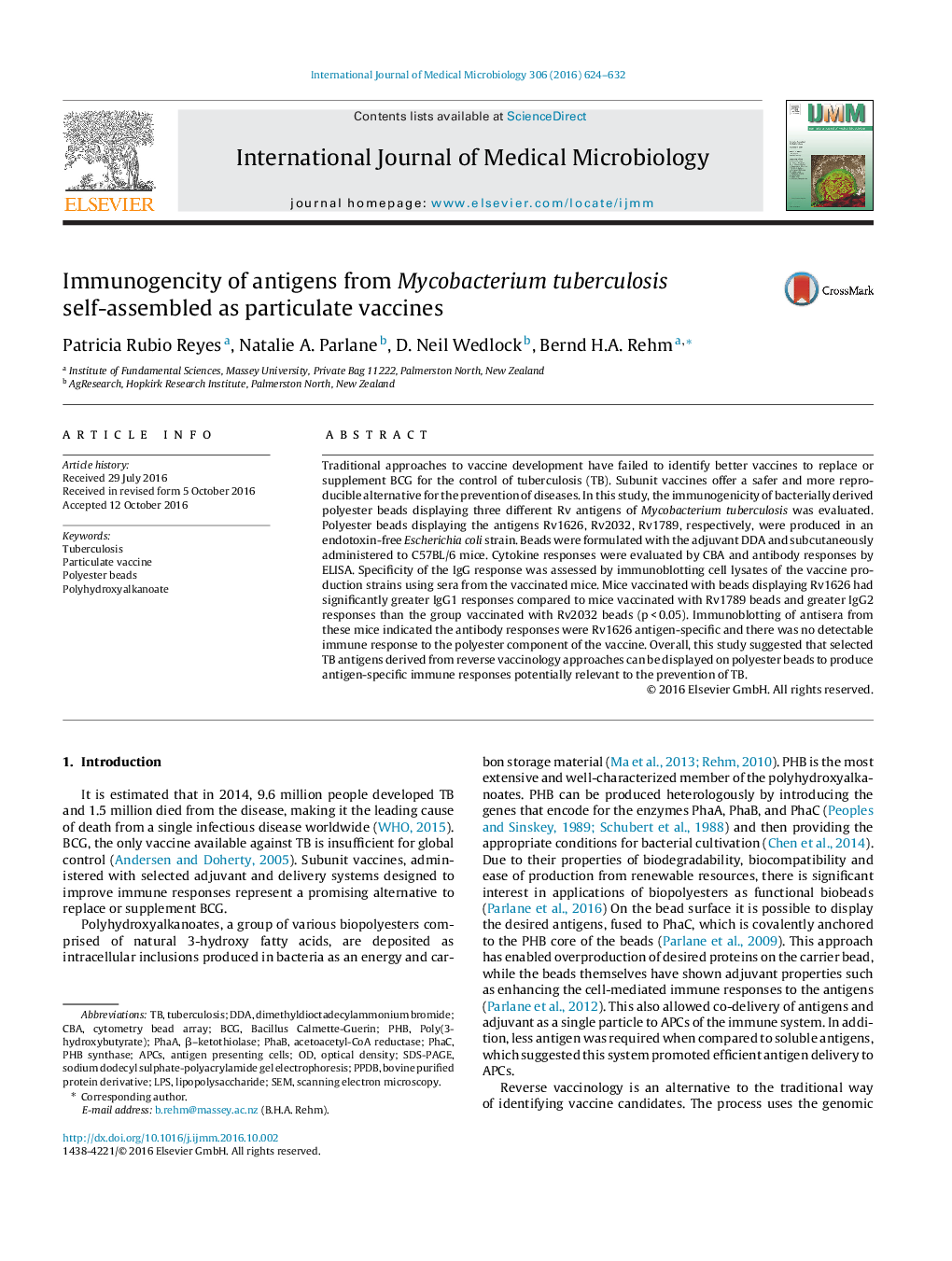| Article ID | Journal | Published Year | Pages | File Type |
|---|---|---|---|---|
| 5517809 | International Journal of Medical Microbiology | 2016 | 9 Pages |
Traditional approaches to vaccine development have failed to identify better vaccines to replace or supplement BCG for the control of tuberculosis (TB). Subunit vaccines offer a safer and more reproducible alternative for the prevention of diseases. In this study, the immunogenicity of bacterially derived polyester beads displaying three different Rv antigens of Mycobacterium tuberculosis was evaluated. Polyester beads displaying the antigens Rv1626, Rv2032, Rv1789, respectively, were produced in an endotoxin-free Escherichia coli strain. Beads were formulated with the adjuvant DDA and subcutaneously administered to C57BL/6 mice. Cytokine responses were evaluated by CBA and antibody responses by ELISA. Specificity of the IgG response was assessed by immunoblotting cell lysates of the vaccine production strains using sera from the vaccinated mice. Mice vaccinated with beads displaying Rv1626 had significantly greater IgG1 responses compared to mice vaccinated with Rv1789 beads and greater IgG2 responses than the group vaccinated with Rv2032 beads (p < 0.05). Immunoblotting of antisera from these mice indicated the antibody responses were Rv1626 antigen-specific and there was no detectable immune response to the polyester component of the vaccine. Overall, this study suggested that selected TB antigens derived from reverse vaccinology approaches can be displayed on polyester beads to produce antigen-specific immune responses potentially relevant to the prevention of TB.
